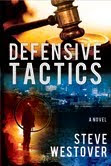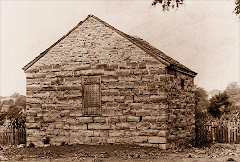
Agents and publishers receive thousands of submissions from authors who have spent months and even years writing their masterpiece. With each new submission the pile on their desk grows into a mountain, out of which they must mine the shining gems.
Agents and publishers simply don't have the ability to read every submission in its entirety. The mountain is too high and their time is limited. They will read through a query or maybe a chapter, but even more likely they will only read the first paragraph or the first few pages to get a feel for the writing to see if they want to continue reading.
As a newby writer I've been surprised to see a number of blog contests judged by agents. Some contests are based on the first page, one was based on the first paragraph and one on the first line. Can a trained eye really spot potential in just a page, paragraph or sentence. Sometimes yes. Sometimes no. But regardless, most of the time that's all the opportunity we get.
What does this mean for a writer? It means we need to have our work pop out of this mountain of paper and shine from the first sentence, paragraph, page and chapter. If that catches a publisher or agents attention they will continue reading. Check out a short post on writing The First Five Pages: A Writers Guide to Staying Out Of The Rejection Pile on my blog. After reading this book I refocused my attention on my first five pages, looking at it from the perspective of an agent or publisher who may be weary of mining and simply trying to find a good reason to reject the manuscript. Every author needs to view their own work with a critical eye to polish the gem to a shiny gloss.
I recently had an opportunity to be one of many judges on a first chapter contest. I had a wonderful time reading the entries and evaluating the chapters. In almost every case, I could tell after the first paragraph or page which chapters should be taken seriously and which chapters I would need to struggle through. Is it fair to make such quick judgements? Yes.
Remember, the mountain of manuscripts agents and publishers read through is huge. We need to polish our gem and then present it to them, hoping our story fits their publishing needs. As I read these chapters I found myself wishing that the writers had spent more time polishing the grammar, working through holes in the plot and finding consistency in their voice. I wished the conceptual framework had been flushed out better and that the story and writing required me to keep reading, not because I had to, but because I wanted to. The fun part was finding the stories that did just that, and there were many.
While I was in school I often had the dream that I showed up to class only to discover I had a huge assignment due or a major test I knew nothing about. I didn't know what was expected and therefore I wasn't prepared to succeed. It is critical that we know what is expected and have the tools we need to be successful. I recently wrote about the Enjoyment Factor which helped me to judge Whitney nominations. I'd also like to share some criteria from judging first chapters. Though I didn't develop these first chapter criteria I'd like to share a couple of the categories. It's like being told what will be on the test so we can properly prepare.
The Hook: Does the story pull the reader in and hold their interest? (Immediately)
Conflict: What is at stake in the story and how is tension used? (Conflict drives the story- does it matter and do we care?)
Characters: Are these compelling, real people whom the reader cares about? (Is their dialogue believable?)
Setting & Mood: Does the story make the reader feel like they are really there? (utilize sense of touch, smell, sight, taste, emotion. Use detail to bring the setting alive but don't over do it)
Conflict: What is at stake in the story and how is tension used? (Conflict drives the story- does it matter and do we care?)
Characters: Are these compelling, real people whom the reader cares about? (Is their dialogue believable?)
Setting & Mood: Does the story make the reader feel like they are really there? (utilize sense of touch, smell, sight, taste, emotion. Use detail to bring the setting alive but don't over do it)
Pace and Style: How well does the writer use words to move the story along? (Is it quirky and sarcastic or dark and forboding? Is there sufficient conflict to move the story forward?)
Resolution/Read-on Prompts: Does the reader want to keep reading? (Conflict creates a need for the reader to continue as they seek resolution- utilize read-on prompts at the end of paragraphs, pages and chapters)
Mechanics: grammar, spelling, etc. (Be sure to follow defined formatting guidelines)
Overall Enjoyment: Was this a story you’d recommend to others? (Be honest)
I strongly recommend The First Five Pages: A Writers Guide to Staying Out of the Rejection Pile by Noah Lukeman. It offers fantastic, real life examples, tangible suggestions and guidelines that will help you polish your work.
Question: When you read a book for enjoyment, how many pages do you read before deciding whether or not the book is worth your time? 5 pages? 10 pages? 50 pages? 100?

























So true. I can't impress enough that we only have a paragraph to convince the agents to take us in. Thanks for the remainder.
ReplyDeleteYeah, I knew this...but it's nice to get a refresher course. Thanks Steve for a great post.
ReplyDelete